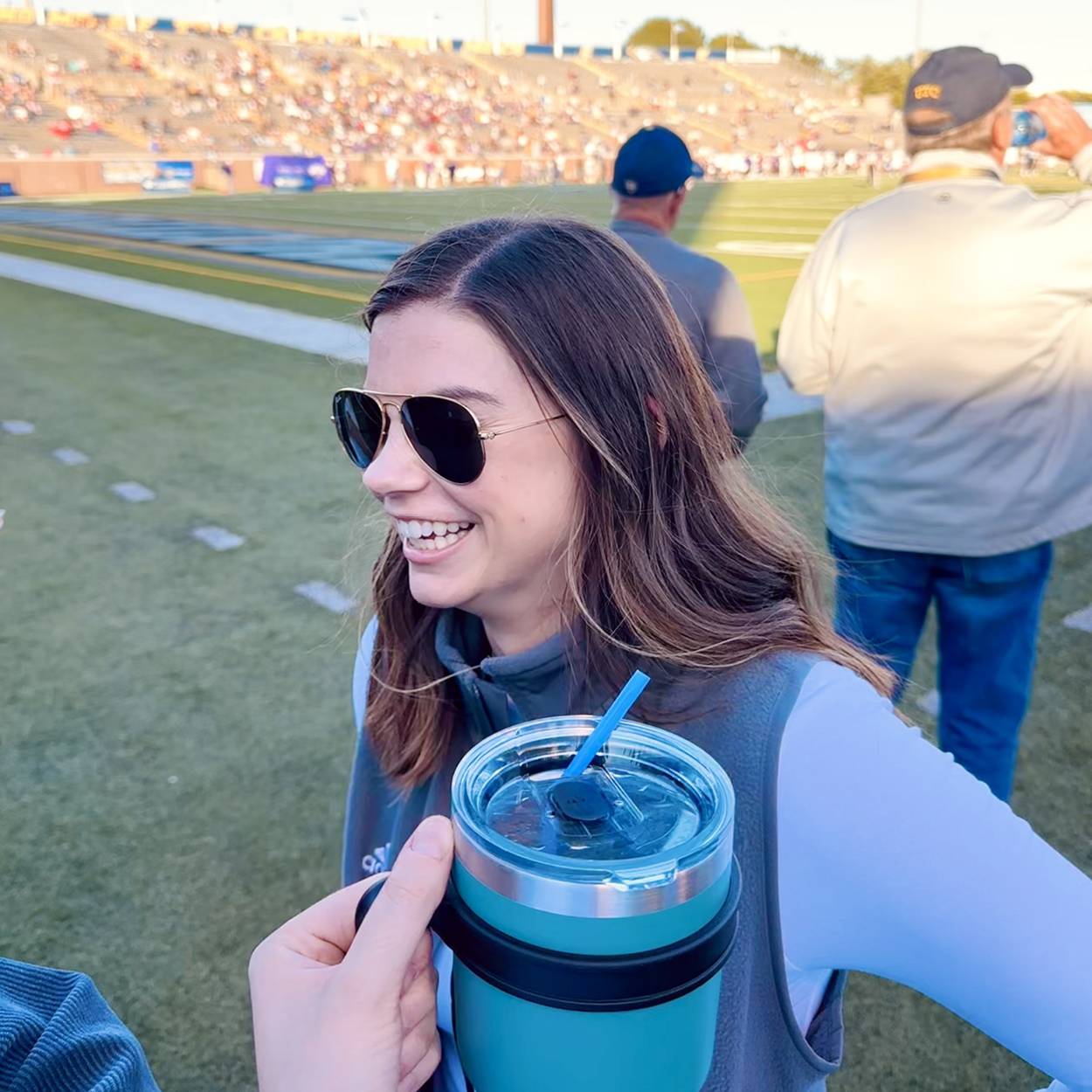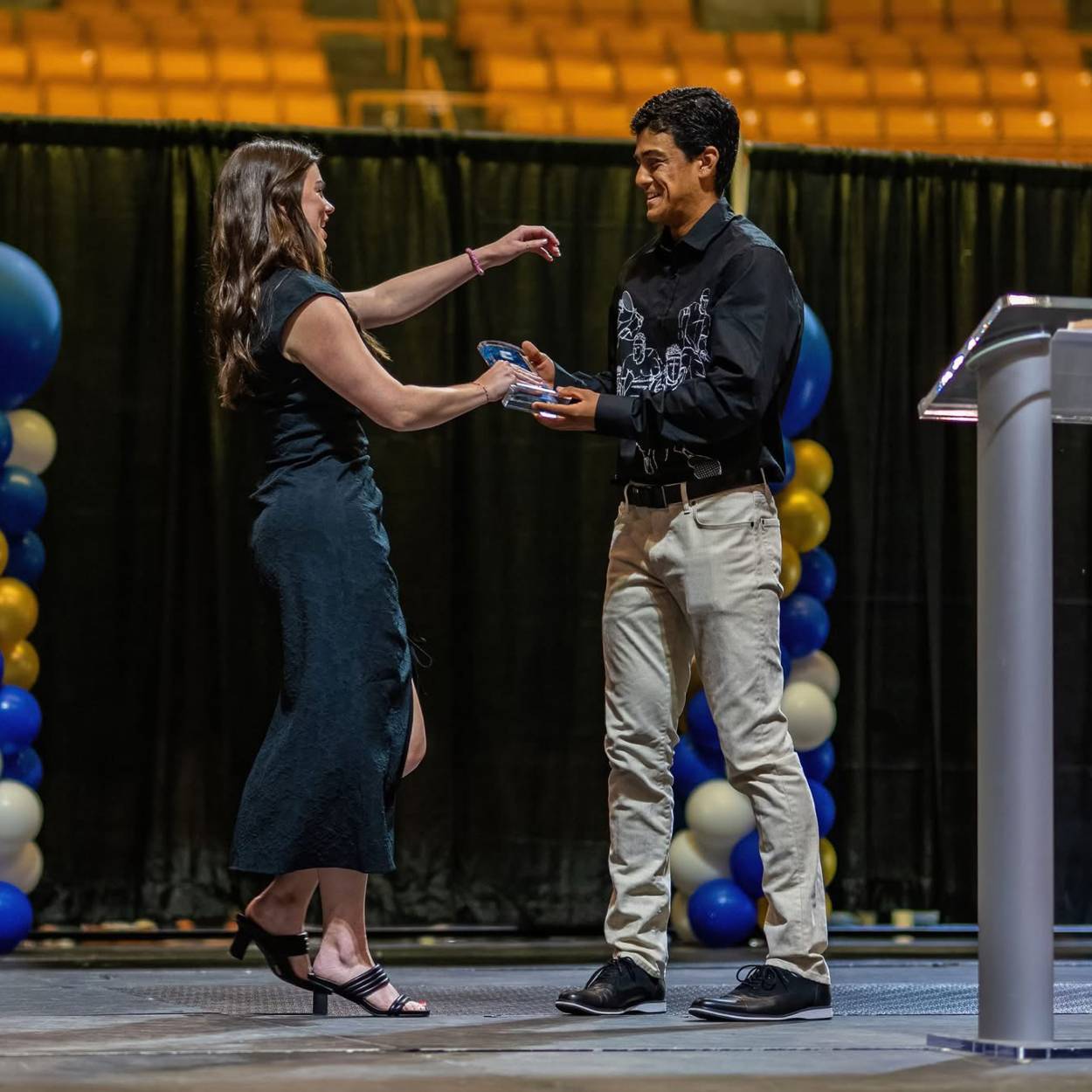McCay Mathis comes from a family of athletes, and she found the sport she loved while attending a friend’s swim meet.
“Actually, I think swimming found me,” says Mathis (2020 master’s, social work). “At my friend’s meet, they kind of just tossed me in the pool, and I was pretty good at it.”
She tried other sports, but she was a natural in the water and quickly became serious about swimming. About six months after swimming her first lap, she was competing year-round, and she was good. She was in the college recruitment process when she learned a nagging shoulder injury would be career-ending.
“Athletics was a huge part of my life, and it was always my expectation to swim in college,” Mathis says. “I didn’t really know who I was once I stopped swimming.”
Without the opportunity to join a swim team, Mathis, a native of Chattanooga, Tennessee, says she couldn’t imagine attending the colleges where she took recruitment visits. Several family members, including her parents, were alumni of Furman University, which was the only school she had considered without athletics in mind.
Her college decision was made, but since her focus had been on swimming, she lacked direction on choosing a major. After some exploration, she completed her undergraduate degree in psychology. To expand her career options, Mathis’s mentor at Furman suggested she pursue her master’s degree in social work at the University of South Carolina.
That nudge landed her at USC where academics, internships and mentoring led to her MSW and her current job as Athletics Counselor at the University of Tennessee at Chattanooga.

“Social work offers a broader perspective, and that is helpful because there are so many contextual factors in the athletic experience,” Mathis says. “I can also use my own experience with athletics and identity. I know this population and its culture.”
She provides mental health and performance counseling, offers education and outreach, and consults with coaches and athletic trainers. Before her position at UT-Chattanooga, she held a similar job at Lee University, also in Tennessee, where she built the student-athlete development and athletic counseling program.
Without the internship opportunities through the College of Social Work, Mathis says she would not have found her niche in athletic counseling.
“My second year, I interned with Sarah Noll, Director of Operations for Mental Health and Performance in the athletics department,” she says. “She has a degree in social work and is a licensed independent social worker. My experience with her showed me it's possible to take on these roles in athletics.”
In the coming year, Mathis plans to pursue a certificate as a mental performance consultant, which will allow her to work more with coaches and teams on performance interventions. Currently, she concentrates on individual counseling for issues such as performance anxiety. She may offer strategies for improving mindset, self-talk, stress management, relaxation and focus. For example, she recalls a tennis player who was missing the serve and losing deuce points.

The player was able to improve their deuce play and gain their confidence back and even move up in the lineup.
Highlighting her impact, Mathis was honored this spring as the behind-the-scenes staff member of the year, an award voted on by student-athletes.
“This recognition was meaningful because I work closely with only a percentage of the athletes, so being recognized by the entire group means I must be making an impact,” she says. “I just love these student-athletes, and I’m glad to be a resource for them.”
Making the most of your college experience
We asked McCay Mathis her advice for aspiring social workers to get the most from their social work education. This is what she said:
- Be open to different opportunities through internships. “So many different paths are available with an MSW. Be sure to take advantage of the doors the college can open for you.”
- The broader perspective provided by a social work degree can be applied to many fields, including athletics. Find what you connect with. “I had no idea this was something I could do with an MSW. I was open to exploring what my options were when I saw the athletics internship on the board. I practically stumbled upon something that was perfect.”
- Connect with a great mentors. “Senior clinical instruction Michael Ottone was a huge part of my experience at USC. I don't think I would be where I am clinically without him. I didn't trust my instincts, and he's been able to instill confidence in me.”
- Form bonds with your cohort. “I'm incredibly thankful for my connection with the people I met in my cohort. They remain some of my closest friends from the College of Social Work. My connections with them still having an on me.
- Don’t be afraid to seek advice. “I advocate for the career centers. They helped me identify social work as a good career path for me.”
- Encourage others. “People often reach out to me about how they can find a job like mine or to ask about graduate programs. I always advocate for social work and emphasize that with the broader and contextual lens of your education, there is a pathway to so many career options.”